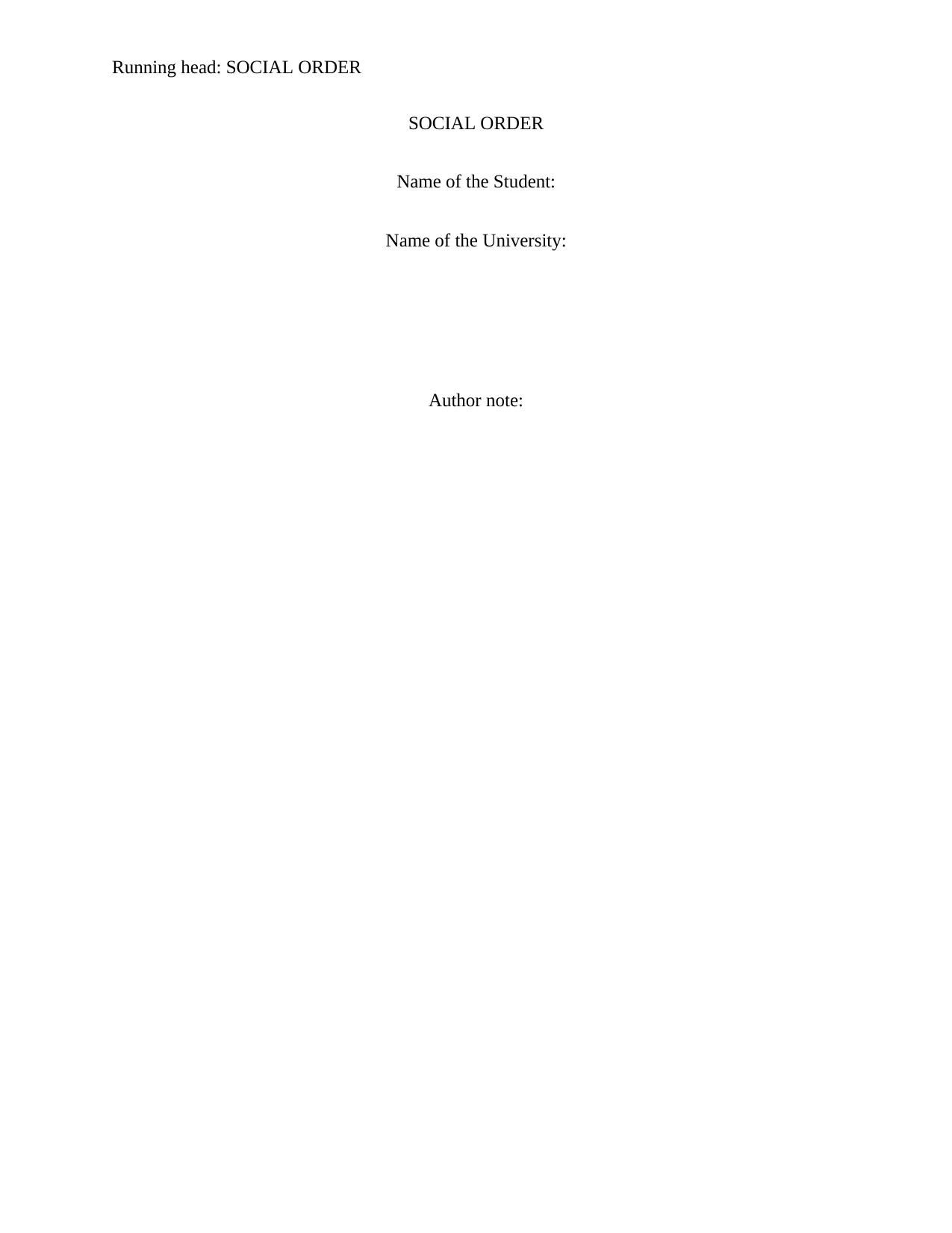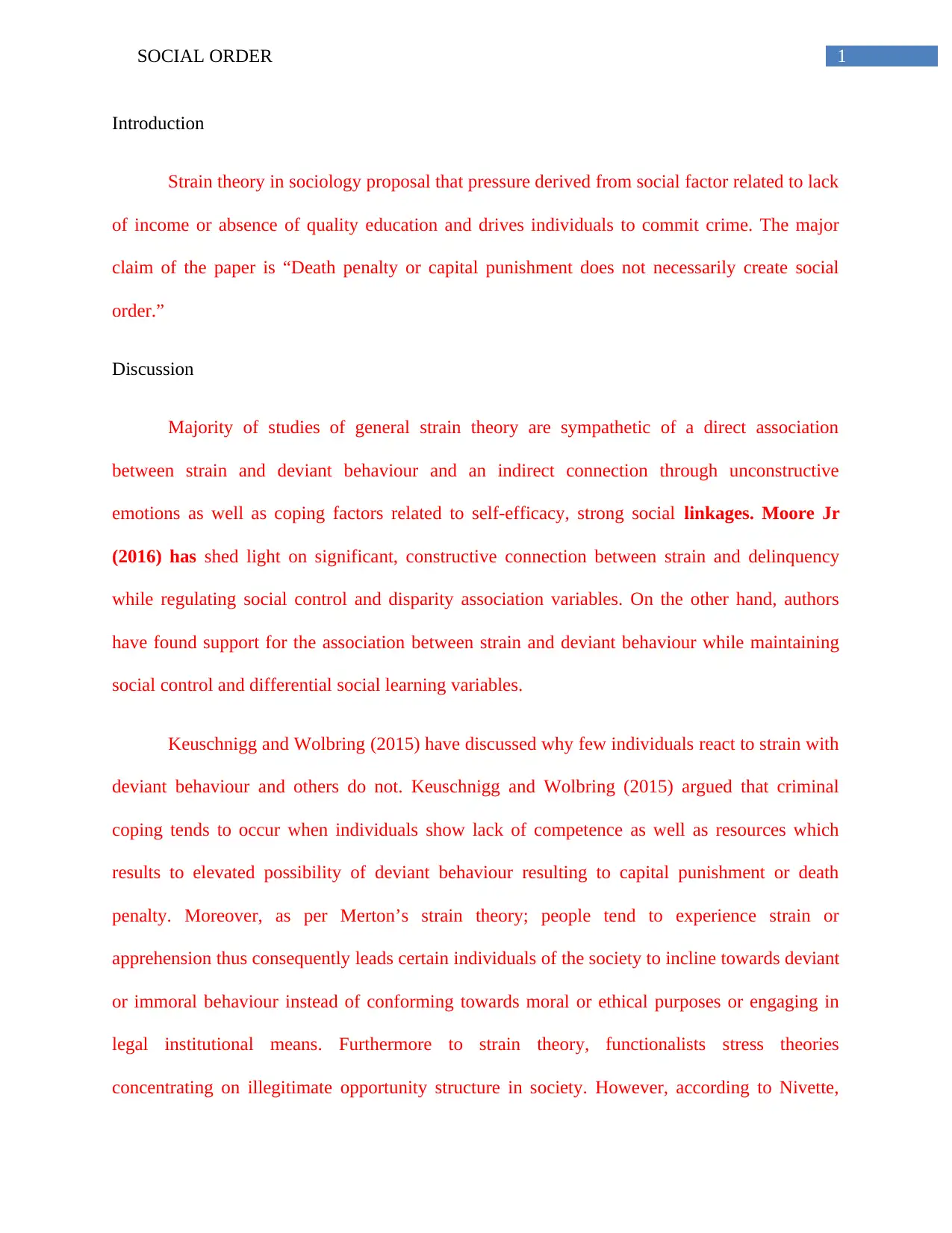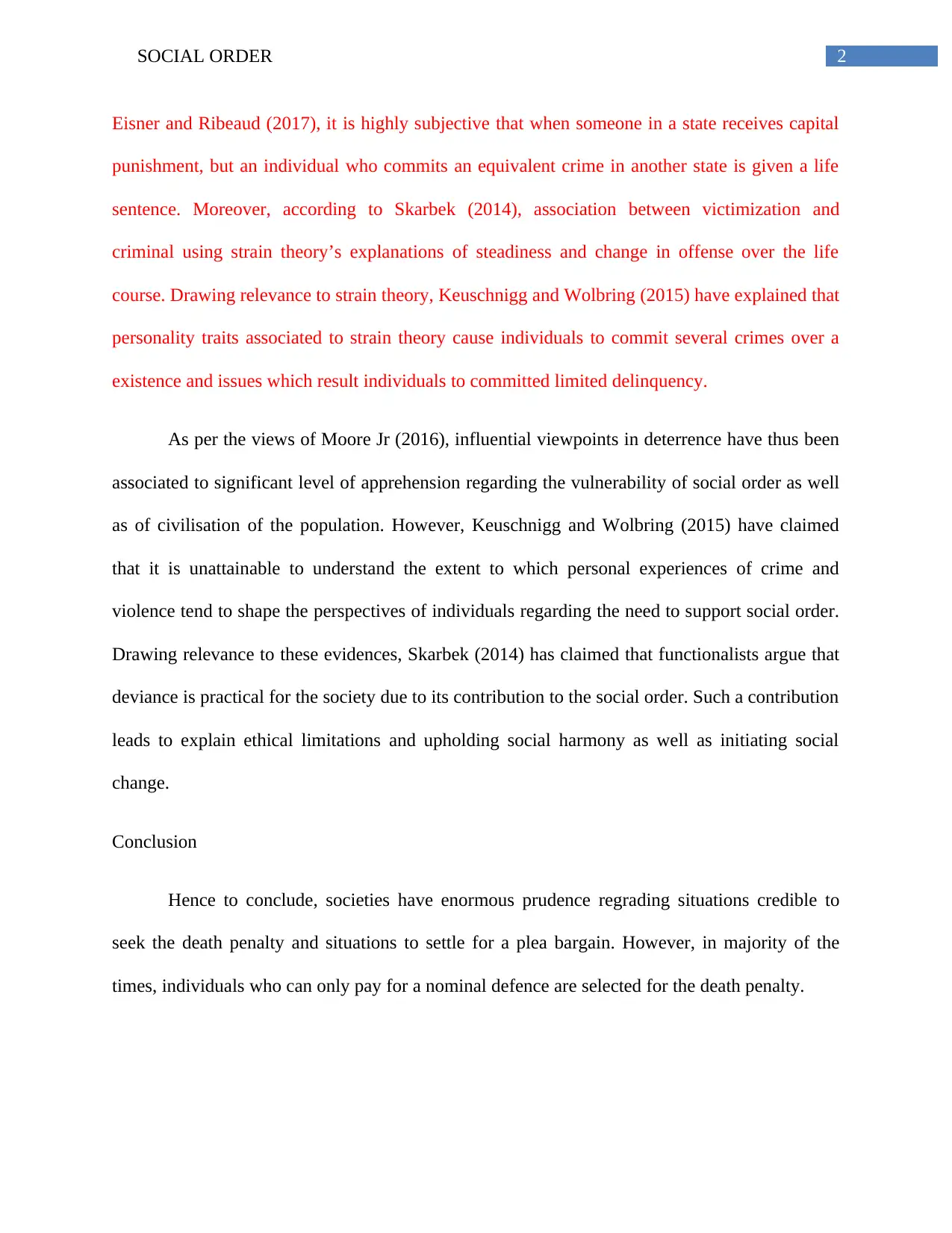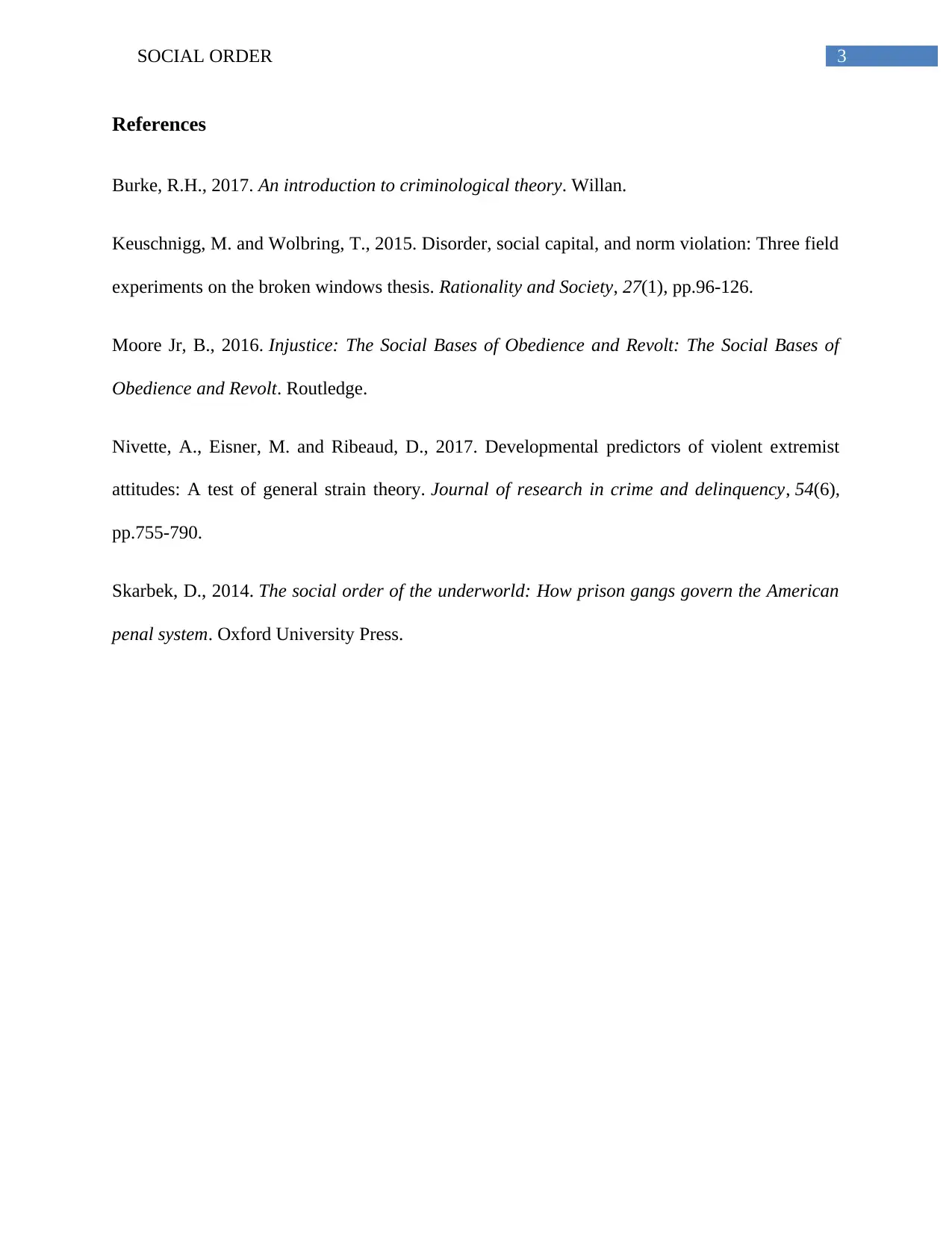Sociology Essay: Impact of Death Penalty on Social Order and Crime
VerifiedAdded on 2023/03/23
|4
|739
|38
Essay
AI Summary
This essay examines the complex relationship between social order and capital punishment, primarily focusing on the lens of strain theory within the field of sociology. It investigates how societal pressures, such as lack of income and education, can drive individuals towards criminal behavior. The essay challenges the idea that the death penalty necessarily creates social order, drawing on various studies and theories. It delves into the arguments of different scholars, including those who discuss the role of social control, differential social learning, and the influence of personal experiences on views regarding social order. The essay also considers functionalist perspectives on deviance and the impact of capital punishment, offering a comprehensive analysis of the topic and concluding with the implications for social order and justice.
1 out of 4











![[object Object]](/_next/static/media/star-bottom.7253800d.svg)